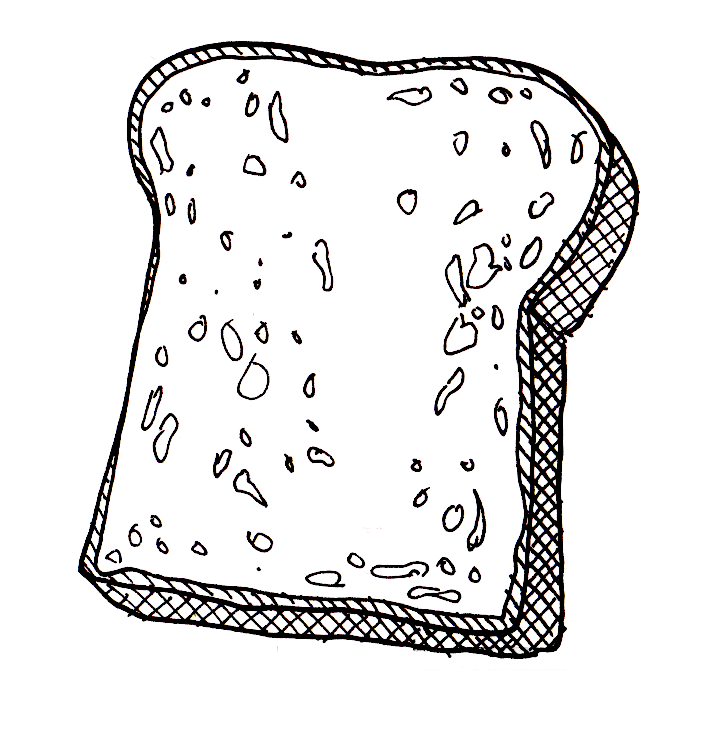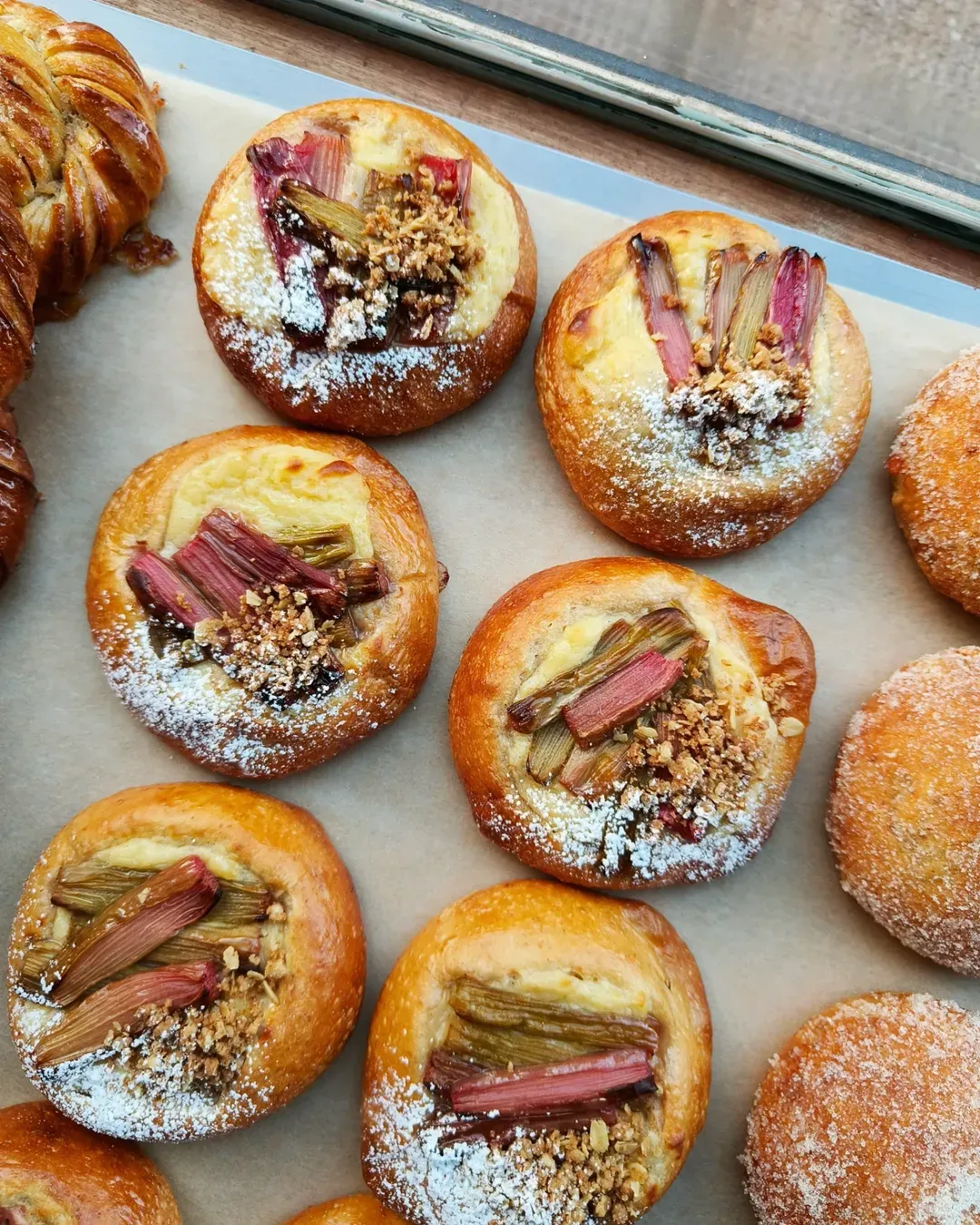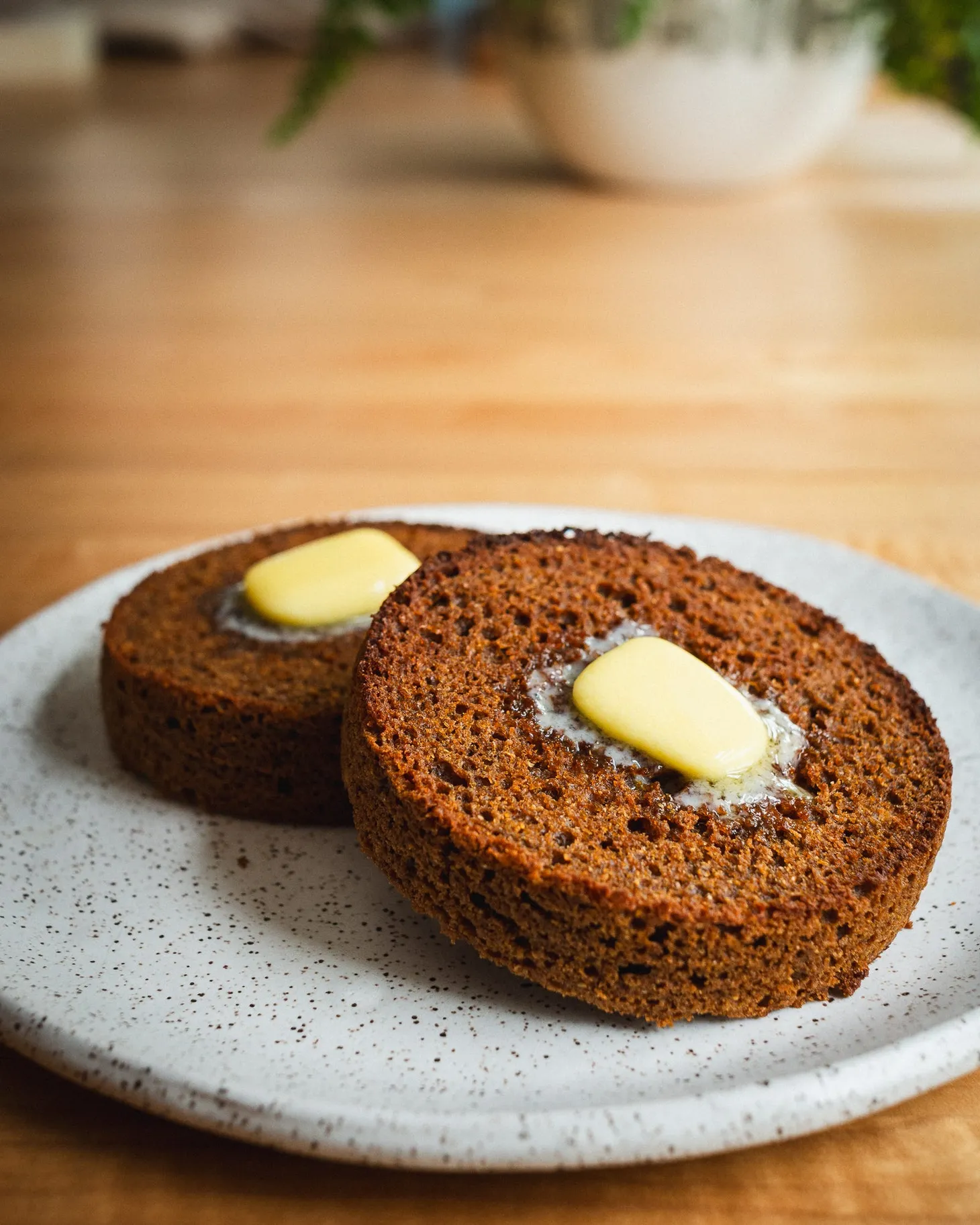Culinary Diplomacy
An interview with Olia Hercules, writer & activist
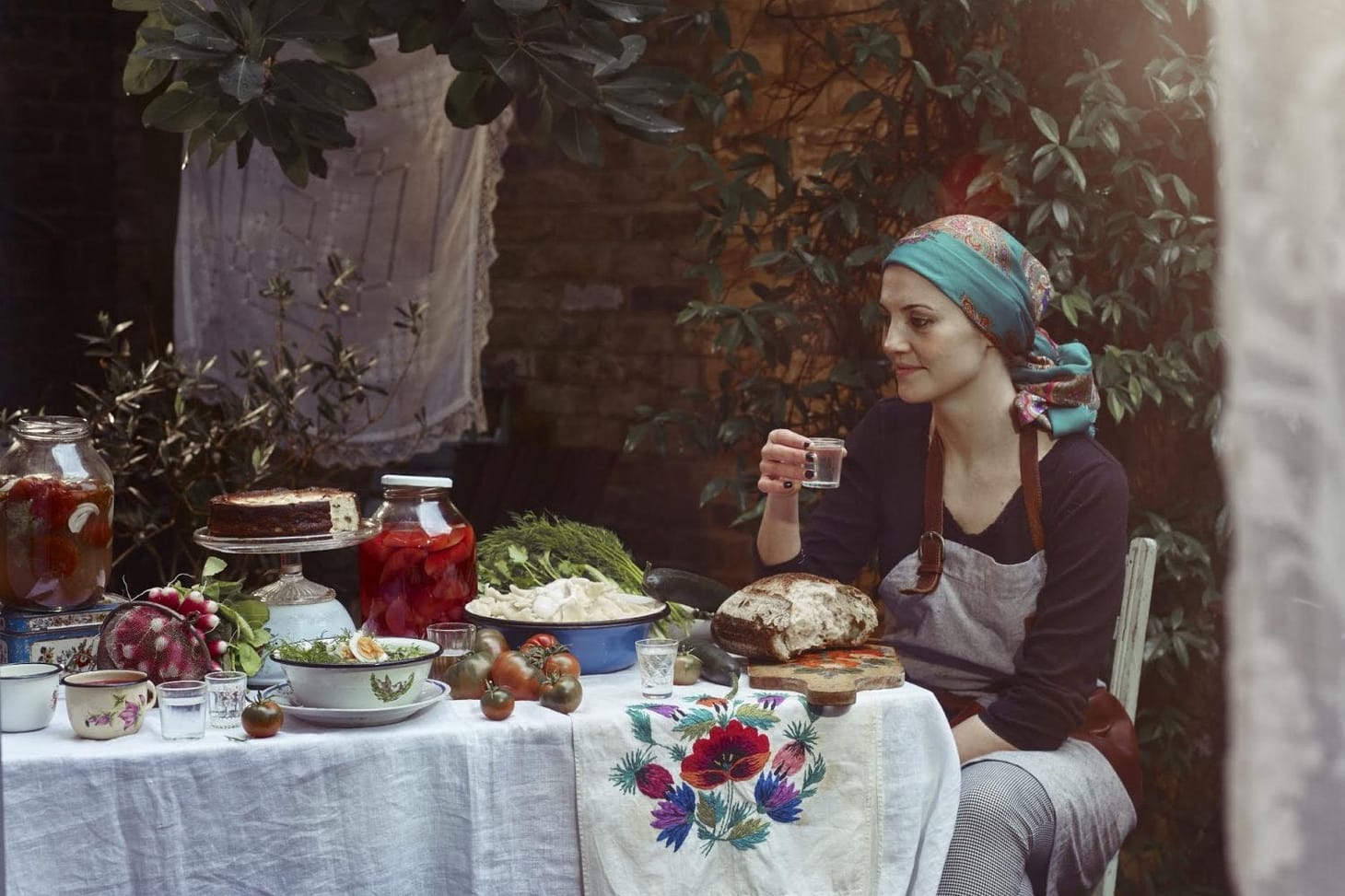
Table of Contents
Cookbook author Olia Hercules has been on a mission to record her culture. When Russia invaded Ukraine two years ago, the mission took on a new urgency. The London-based chef sprang into action, organizing to raise funds to defend and support her country, where her family still lived.
Her books — Mamushka, Kaukasis, Summer Kitchens, and Home Food — trace the overlapping cultures that led to her cuisine. Those include but are not limited to Moldovan, Armenian, Georgian, and Azerbaijan. In her writing, and in photographs that highlight everyday people as much as the bread, savory pastries, ferments, and sweets they are making, her passion for food and humanity is loud and clear.
I have Polish roots, but assimilation wiped my familial plate clean. When I read these books, or dip into the cooking community that Olia Hercules has developed on Patreon, full of videos and recipes, I feel like I’m meeting my history and stepping into my culture. Her welcoming style invites everyone to such exploration, as I hope you see in this condensed version of our conversation.
—Amy
Amy Halloran: When did you start to imagine yourself as a food writer?
Olia Hercules: I was working as a journalist for a film magazine when the (economic) crisis happened in 2009. So there were loads of redundancies, and I survived five of them, but I thought maybe it's time to realize my actual dream. At that point, even though I was obsessed with cooking, publishing a cookbook was beyond anything that I thought would happen. But I left my job, and I went to retrain at Leiths School of Food and Wine and did a diploma there for a year. There was this competition at the school to join the BBC, Good Food magazine as a recipe tester and I nearly got in. When I didn’t, I thought I’m going to go to the other extreme, and work in restaurants just to prove to myself that I that I can do it. I worked for various restaurants for a few years, including Ottolenghi, and then I had a surprise pregnancy with my oldest son that finished that part of my career. I couldn't do those kinds of hours anymore.
But when Sasha was six months, I went back to work and I started doing loads of different things, including catering. I ended up working as a recipe developer by 2014. I lost that job because the company folded and that was just before the war actually began 10 years ago in Ukraine (as Russia invaded Crimea). I was unemployed but had no thoughts of any books or anything like that. It wasn't on the agenda. I think it is some kind of a dream for everyone, but I wasn't approaching anyone with a book idea. I did have a couple of recipes published in the Guardian as part of this feature that they used to do. I wrote to them and said I'm a recipe developer here are my recipes, and they really liked some of the Ukrainian recipes that I did. So those were out in the ether.
When the war in Ukraine began (in 2014), an agent contacted me and said she saw my Ukrainian recipes. “We see so much of war in the headlines, but we don't actually know anything about Ukrainian people or their culture. And maybe there is a book in there,” she said. I went to see her. I talked to her for two hours about my life. She said you tick every box but your following on Instagram is 500 people, and we need thousands. She said go back and keep doing what you're doing. Come back to me in two years. One thing led to another and within two months I had a book deal. I immediately wrote to that agent and I said you said two years, it's been two months, and it looks like it's happening. She signed me up and then there were four publishers in a bidding war for the book, for my first cookbook, Mamushka. I'm still pinching myself because it just happened. I worked really hard towards it, or towards something and I guess that time came when people were finally interested in Ukraine, in Ukrainian culture. I think some stars had aligned and it just went from there. Mamushka has now been translated into 11 languages and has sold hundreds of thousands of copies worldwide.
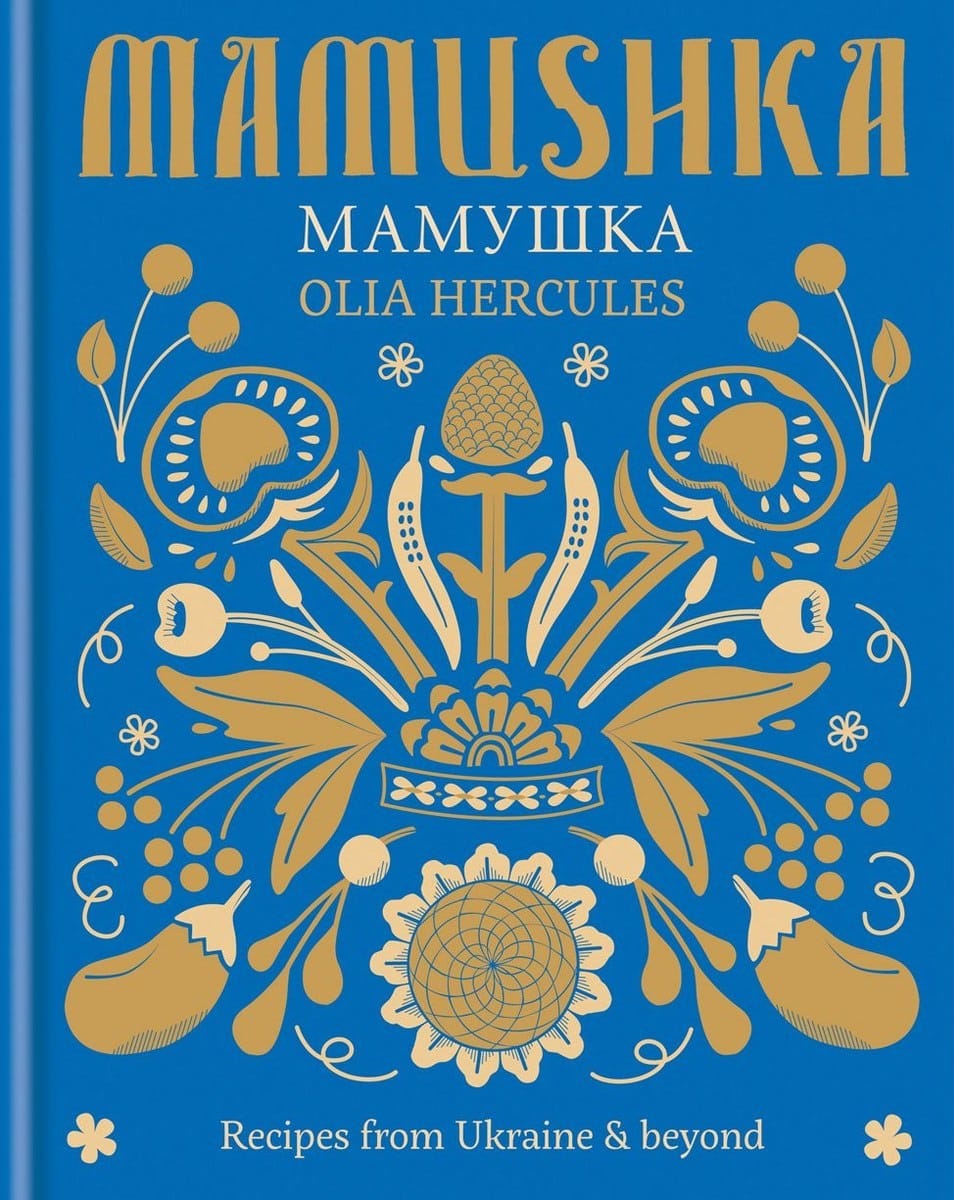
AH: But I remember reading how you didn't always believe that your cultural foods were to be celebrated.
OH: Well, it's always been a struggle, to be honest with you. I left Ukraine when I was 12, so that was 1998. We went to live in Cyprus first for five years, and then I moved here to the UK to be at university. And it was quite hard to explain to people. They were always associating Ukraine with Russia. And then I would bristle up and have to defend myself and explain to people. It was really exhausting.
I think quite a few people associated Eastern Europe cuisine in general—the older generation would say, “Oh, I went to Czech Republic in the 1970s and the food was rubbish, and it was overcooked cabbage and potatoes.” That makes you develop a complex, always having to fight those stereotypes. So when I did get the book deal for Mamushka I felt my mission was to show that it's a lot more than those stereotypes. I wanted to show the color, you know, the summer cooking. Southern Ukrainian cooking is very different from Western and Northern Ukraine. You know, we're close to Turkey and it's hot and it's a completely different climate, different ingredients, and an almost Mediterranean style of cooking in a lot of places, especially in Kherson region where I'm from. That felt really important to show people that there's more than those stereotypes.
But I've cured myself of that complex recently. I think it was Nigella Lawson, in one of her latest books she wrote about being in defense of brown food. And I went back and just thought, you know what, I'm now going to also sing the praises of all of the cabbage and potato dishes, which are absolutely delicious in Ukraine, too. And they're this winter food. And, you know, it deserves as much love as all of the fresh fruit and food of the summer.
AH: I love how many dough-wrapped foods you highlight, from noodles to perogies, taking dough so far beyond bread. Can you talk about the expansiveness we see in this broad category of food?
OH: For thousands of years, people have had a really big connection with bread. In Ukraine, you can feel it very acutely. I want to briefly mention the really sad thing that happened not once, in the 1930s, but actually about three or four times, the hunger in Ukraine, the artificial famine Holodomor. The bread, grain, and land were taken away from people and that put a significant mark on us, on our grandparents and parents. And I can feel it in my bones as well. In my house still, I would never ever throw away a piece of bread. There is a really strong connection to that bread traditionally. You know you're not allowed to swear in front of the masonry oven where bread would traditionally be baked because it's like a mother figure.
In my house still, I would never ever throw away a piece of bread. There is a really strong connection to that bread traditionally. You know you're not allowed to swear in front of the masonry oven where bread would traditionally be baked because it's like a mother figure.
1947 was a big year of hunger and quite a lot of people survived on these sort of like flatbreads, very humble and simple, but they kept you going. My grandmother would have always ten of these standing on the table in the kitchen. She was very, very busy. They had a homestead thing, and she was looking after her animals, and had six children, but there was always a pile of these puffy, fried flatbreads on the table. If anybody is hungry, they can just go in and just like, have a little snack and then go out.
There's yeah, loads of rituals to do with bread. One thing we still do during Christmas, for example, is during the Christmas Eve dinner. We have our food and then we also put a piece of bread and a little bit of a drink, in an empty space where nobody's sitting. Well to us, it's like our ancestors. That connection that we have with them, I think is really significant.
We grow up with a lot of enriched baking. So for Easter, we make paska. For Christmas, we make the poppy seed roll. You would make about 15 poppy seed rolls and 15 paskas for Easter, and have masses of this beautiful yeasted dough everywhere. Unfortunately, sourdough baking has died out; in most countries that are postindustrial, sourdough faded away, but we have rediscovered it recently. My mother started baking sourdough bread maybe 10 years ago. She picked it from different places and created her own simplified way of doing it and she taught me. Now I bake pretty much every other day. I make a sourdough bread and dough-encased things are hugely popular in our house and in my family in general.
So it's huge. Bread is a really big thing. And I think for us, we really enjoy doing it. I can't speak for every Ukrainian, but I know that in my family pastry is not the favorite. Like all of that precision and cold. You know, being in the cold environment, maybe not our vibe, but definitely the warm yeasted or sourdough, and doughy situations is something that we really love and find really therapeutic as well to work with. So, you know, it's healing, it feels healing and good for your mental health.
AH: What's your family bread like?
OH: I do make sourdough bread. I make this ferment, a pumpkin and apple ferment. It's a central Ukrainian thing, and I use it quite a lot to add to my sourdough. So it’s like this bright orange color sometimes, which is nice. That’s our home loaf. And I just throw whatever seeds I have at home as well and a little bit of Ukrainian rye malt. So the bread is either orange or like chocolatey brown, part white organic flour, part rye flour. I do stretch and folds, keep it in the fridge, and then slap it onto that lid of the pan, put the cast iron over it, then take it off and it's nice. Delicious, crusty, chewy, nutritious bread that everybody loves. And the sourer the better. Like especially my youngest one. He loves it when I forget about it, three days in the fridge and it's super, super sour.
AH: Tell me about pampushky.
OH: Traditionally they would be made to accompany borscht. We make these buns almost like a flower pattern, you put one in the middle or two in the middle and then all of the other ones around. And then you let them rise quite close to each other, so they have almost straight backs and then they're round on top. And then you bake them together and then you make this oil infused with loads of garlic and dill and parsley. As soon as they come out of the of the oven and they're still hot, you pour all of this flavored garlic and herb oil all over them, and they soak it up. You eat them with borscht. I've also developed the sourdough version of those, so I make them sourdough too.
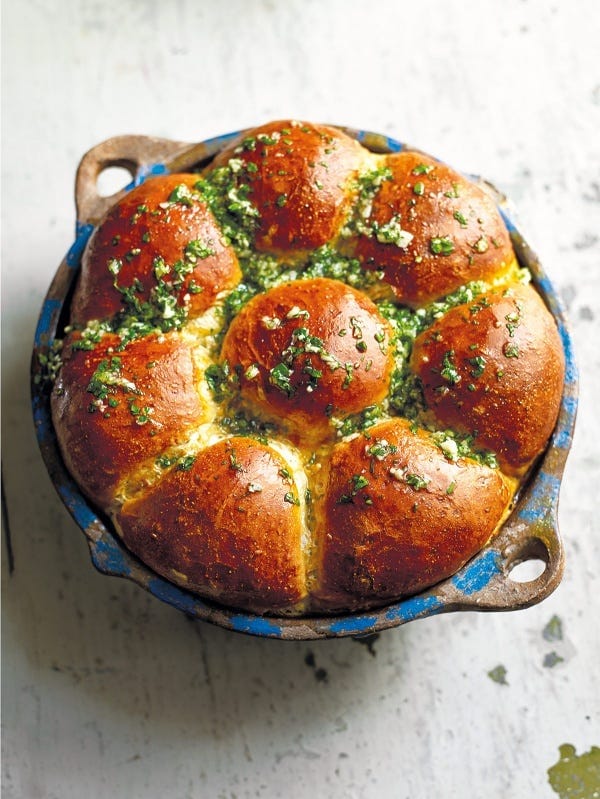
I don't think it's hugely seasonal. I mean back in the day, obviously you'd only get herbs during a certain season. But my grandma fermented the herbs as well, so they would always have some version of dill in the house even before people had freezers. Fermented by layering the herbs and sorrel and with salt and then they kept that in the cellar throughout winter. Nowadays it's all year round, whenever you want borscht, which you want borscht all the time. And sometimes you'd make that extra effort and make pampushky to go with it.
AH: Let’s talk about the most recent war. Your response was so swift and visceral, and you carried us along on social media. You made yourself very vulnerable, and you’re leading a very public life. I don't know if I have a question there, it's just remarkable to see.
OH: I guess I have made myself extremely vulnerable. But luckily, at least at first, it didn't feel that way. I felt supported and I felt like we were all like a huge force because I'd already had almost ten years of connecting with people through food. It almost created this invisible bond between me and thousands of people because so many people donated on day two of the war and actually saved quite a lot of lives. My brother and the people that he was with defending Kiev, that (raising money for protective gear) saved their lives—there’s just absolutely no doubt about it. Because that happened, I never felt vulnerable or weak. I always felt like we were just this massive force and not just Ukrainians and Ukrainian diaspora, but our friends all over the world. Having done all of the work that I have been doing with my culinary diplomacy, if you like, I feel that it helped to have that deeper connection because people viscerally understand. They viscerally understood the joys of Ukraine.
Every time I would go to Ukraine (before 2022), to my mom and dad's house in the summer, you know, that's when I had the most engagement online, for example, because they just loved seeing my mom's tomatoes or peaches or us cooking together, those breads or noodles or whatever we were making. There was just always so much interaction. And obviously the books helped as well. So when the bigger war broke out, I actually felt really supported. And I'm extremely grateful to everyone all over the world, everyone who's helped and who's connected with me and my country women and men.
AH: Can you talk about the online cooking school that you've developed?
OH: During the pandemic, because we couldn't work in a normal way, I started doing online classes. Just before the big invasion, we were supposed to literally launch the week of the invasion. And then I had to delay it a little bit, but I thought I'll just do it through Patreon because it's just all there together. There's different tiers from, you know, two pounds for students and people on lower income and single parents to whoever's got more money and wants to really support. It’s a great community. It's been very stable. You know, some people go, some people come. And I encourage that and just say, look, you don't have to be on it every month, you can dip in and out. I’ve developed really good community, the same people come and join the live classes. I interview food writers as well about their food writing, and we film professionally with a friend of mine, Kai Cummings, whose wife is Ukrainian and is one of my best friends. Everything that we do within it (the online cookery school) is supporting Ukraine and apart from that, I've also been giving money to directly to Ukraine. My mom and dad left the Kherson region, but quite a few of my dad's employees remained. My dad was refusing to go because he felt this responsibility for everyone. And I made a deal with him and I said, look, I'm going to help you. I'm going to help you to support everyone, but you have to leave, because otherwise I won't be able to do anything. If I keep thinking that they're going to take you to the basement and do something bad, you know, I just can't. So that was the deal and Patreon has been extremely helpful in that.
AH: I just think it's beautiful that you've managed to invent the these containers that hold you and your love for the world, and your love for your culture, and that you give that love to us. It's not often that people get to be used so well. And you are using yourself so very well.
OH: Ohh thank you so much. That's really beautifully put. Thank you.
So, dear readers, I hope you are inspired to sample Olia Hercules’ recipes, or try out her cooking school. Borsch (winter version here) is always a fine place to start, with some pampushky (YES!), and it is almost time for Easter breads, so take your pick. And if you already have a favorite of hers, please let us know!
wordloaf Newsletter
Join the newsletter to receive the latest updates in your inbox.
